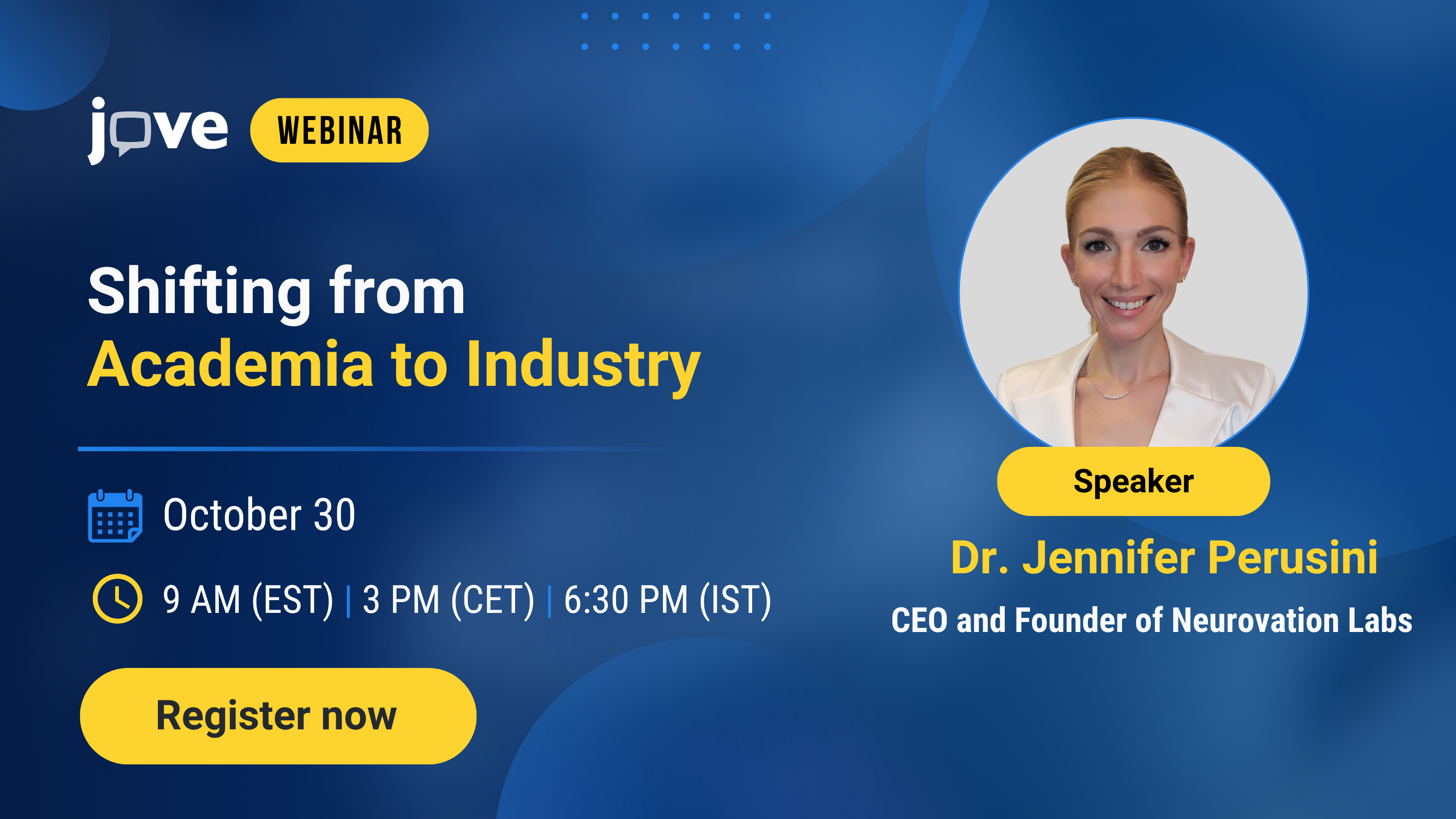At more than one point in my scientific career path, I have been torn between possibilities. There are so many directions to explore, from research and teaching to industry and science communication, and I wasn’t yet sure which one felt right. I had choices, yet little clarity about how to begin.
Our previous post shared practical advice for scientists starting out in their careers. It focused on developing core skills, setting clear goals, and finding mentors who can offer guidance. These themes were also discussed during the recent webinar Building Your Career in Science webinar with Dr. James Eberwine, where participants shared similar questions about direction and opportunity.
This article continues that conversation, focusing on how initiative and mentorship help scientists build purposeful and lasting careers.
Take Initiative Early
Many scientists wait for permission to take the next step. They hope a mentor will open a door or a project will appear at the right time. But progress often starts with initiative. Studies show that early-career researchers who set goals and take active steps toward them report higher satisfaction and productivity than those who wait for direction.¹
As Dr. James Eberwine noted in the webinar, some of the most defining moments in a research career come from asking questions, seeking guidance, or proposing an idea before being invited to do so. Early in his career, he approached senior scientists directly to request one-on-one tutorials—something that shaped his scientific path and confidence.
Taking initiative doesn’t always mean making big moves. It can be as simple as volunteering to present at a lab meeting, reaching out to collaborate across departments, or suggesting a new way to analyze data. These small acts signal curiosity and leadership, and over time, they help you shape the kind of career you want.
Mentorship as Collaboration
Behind every accomplished scientist are mentors who listened, challenged, and encouraged them to think bigger. Good mentorship strengthens research performance, supports career planning, and builds confidence.²
But mentorship isn’t just guidance from above. The best relationships are collaborative, where both mentor and mentee learn from each other. As Dr. Eberwine emphasized, these conversations, whether with supervisors, peers, or collaborators, can shape how you see yourself as a scientist and what kind of impact you aim to make.
Peer mentoring also plays a crucial role. When students and postdocs share knowledge and support each other, they make research environments more open, connected, and resilient.
Mentorship provides direction, while initiative creates momentum. Together, they form the foundation for a career that keeps moving forward with purpose.

Guard Your Time and Energy
Ambition fuels discovery, but it needs focus. Many researchers say yes to every opportunity: teaching, committees, collaborations, reviews. Over time, this can drain energy and make it harder to prioritize meaningful work.
Before accepting something new, ask whether it supports your goals or just fills time. Protecting your focus is not a lack of ambition. It is how you make space for your best work.
Rethinking What Counts as Impact
In science, success is often measured in numbers: papers, citations, and grants. Yet these do not tell the full story. As Dr. Eberwine noted in the webinar, real influence also comes from teaching, mentoring, collaboration, and communication.
The Leiden Manifesto argues for evaluating researchers on a broader range of contributions, including openness and community engagement.3 Research supports this shift. Mentoring doctoral students improves their confidence and study design skills, while communicating clearly with the public strengthens trust in science.
Impact takes many forms. Sharing reproducible methods, supporting colleagues, or helping others see the beauty in scientific work all contribute to lasting progress.
Where Science Can Take You
A background in science opens many doors. The same skills that drive discovery—critical thinking, data analysis, and curiosity—apply far beyond the lab.
| Career Path | How Scientific Training is Applied |
|---|---|
| Academic Researcher | Leads investigations, secures funding, mentors students, and advances theory or methods. |
| Industry Scientist (R&D) | Turns discoveries into new products or therapies, validating results at scale. |
| Science Policy Analyst | Uses data and evidence to inform decisions on research priorities and innovation. |
| Data Scientist / Bioinformatician | Applies programming and statistics to interpret complex datasets. |
| Clinical Research Associate | Manages trials, ensures compliance, and maintains data integrity. |
| Scientific Writer / Editor | Communicates findings clearly for journals or general audiences. |
| Intellectual Property Specialist | Evaluates novelty and helps protect discoveries through patents. |
| Science Education & Outreach Coordinator | Designs programs that connect current research with learners. |
Scientists succeed across these and other roles because they bring adaptable skills such as observation, analysis, and creative problem-solving that remain valuable everywhere.
Building a Career That Lasts
Science moves forward through people who take initiative, share knowledge, and keep learning. Mentorship offers perspective, while initiative keeps you moving. Together, they build resilience, creativity, and lasting impact.
Every researcher defines success differently, but meaningful progress often begins with curiosity and the willingness to reach out.
Join our upcoming webinar Shifting From Academia to Industry for practical tips on transitioning careers.
- van der Weijden, I., Belder, R., van Arensbergen, P., & van den Besselaar, P. (2015). How do young scientists benefit from working in teams? Research Evaluation, 24(4), 366–377. https://doi.org/10.1007/s10734-014-9774-5
- Paglis, L. L., Green, S. G., & Bauer, T. N. (2006). Does adviser mentoring add value? A Longitudinal Study of Mentoring and Doctoral Student Outcomes. Res High Educ 47, 451–476. https://doi.org/10.1007/s11162-005-9003-2
- Hicks, D., et al. (2015). The Leiden Manifesto for research metrics. Nature, 520, 429–431. https://doi.org/10.1038/520429a


